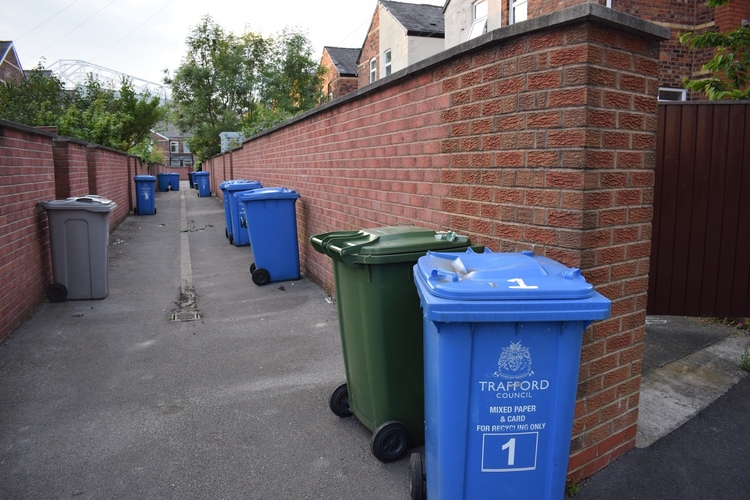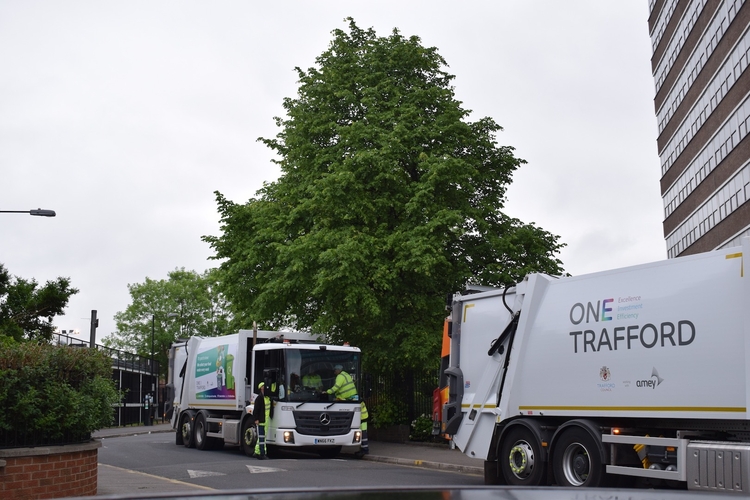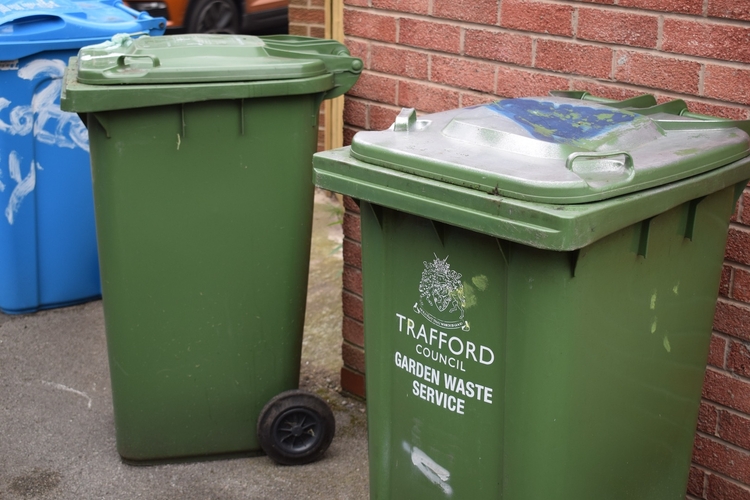The council now charge £40 to have garden waste removed - so what's council tax for? Lucy Tomlinson finds out...
When I talk to people about the new charge for garden waste that Trafford Council has levied on its residents I get response such as “furious” “livid”, “don’t even get me started” and “thieving gits”. To say that the so-called 'green bin tax' is unpopular is an understatement. It’s lucky for the Tory-run council that they decided to introduce it after the local elections.
For those non-Trafford residents who haven’t received flyers or tags to remind them they either cough or lose their right to put garden waste in the green bin, Trafford Council has, as of 5 June, introduced a charge for garden waste to be taken away. To clarify, despite the catchy moniker, it is neither a tax (because people can opt out of paying for it) nor technically applies to the green bins - people can still use their green bins for food waste, but if they want to put any garden waste in it they must pay £40 (or £35 via internet) to the Council.
Probably the first question on your mind (especially if you are not a Traffordian) is: why should I give a damn? Is there anything more boring than bins? Well yes, it does seem rather minor, but it is also a neat illustration of the relationship between councils, their residents and private companies. If it’s happening in waste, you can bet it will be happening in your other services pretty soon, and, for non-Trafford residents reading this, if it works in Trafford you can bet other Manchester councils will take it up quick smart.
To put it simply the Council don’t want to save money here but make it
The first criticism of the charge is that surely it is already covered in the council tax that residents already pay and that this is just a sneaky way of getting a council tax rise passed the books. While the first part of the criticism is roundly denied by the council, the second needs unravelling. Councils are required to hold a referendum if they increase the council tax by more than the cap set by central government. The recent increases by Trafford have fallen just shy of the cap, as this is an optional charge it doesn’t count as tax and therefore, Trafford Council avoids an awkwardly-timed referendum.
As Trafford, like councils everywhere, are strapped for cash, many people have suggested various money-saving options such as having green waste collected every other week (as Manchester Council and other councils currently do in winter), but the point of the move is not to save money per se – in fact the initial outlay could rise as the Council pay for green bins to be replaced with food caddies – but to generate revenue. To put it simply, the Council don’t want to save money here but make it. The running costs for the new scheme will be similar, after all, green bins and caddies containing only kitchen waste will still be collected.
While this sounds cynical it is important to remember the position the council are in: £22 million worth of savings must be found this financial year under conditions of austerity cuts and the rising cost of social care. And the Council’s implicit argument is that if you can afford to have a garden, then you can afford to pay for the council to take it away.
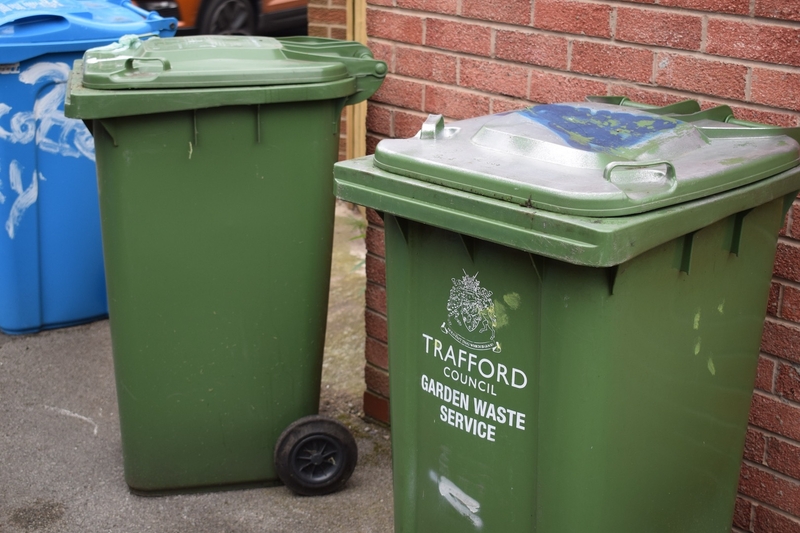
It’s also instructive to look at other recent changes in Trafford’s plans for waste management. Recently, the Greater Manchester Waste Disposal Authority (GMWDA) terminated its supposedly long-term contract with Viridor, who were responsible for the Revive project. The Revive project saw green waste processed into compost and sold. It was commonly thought that the council already made a profit from the sale of the Revive compost made out of our garden waste, but according to the Council, this is not the case. The council claims that any revenue from selling compost goes straight back into offsetting the cost of composting, but doesn’t cover it.
Similar Revive composting schemes in other areas, such as Somerset, do in fact make a profit, though this can’t definitively answer if the Revive scheme was working as it was meant to in Trafford and the wider region. Certainly from the Council’s own figures it seems that the Revive compost failed to meet targets set for it recently.
And while the termination of the £3bn PFI (Public Finance Initiative) partnership between Viridor Laing and the GMWDA seventeen years early can hardly be down to poor compost sales, that the new green bin charge comes hot on its heels suggest the new services partnership – with Amey – is taking a different approach to recycling in general. Amey, by the way, is already deeply unpopular with local residents and there is much suspicion that Amey are benefitting from this new charge (see Q&A below).
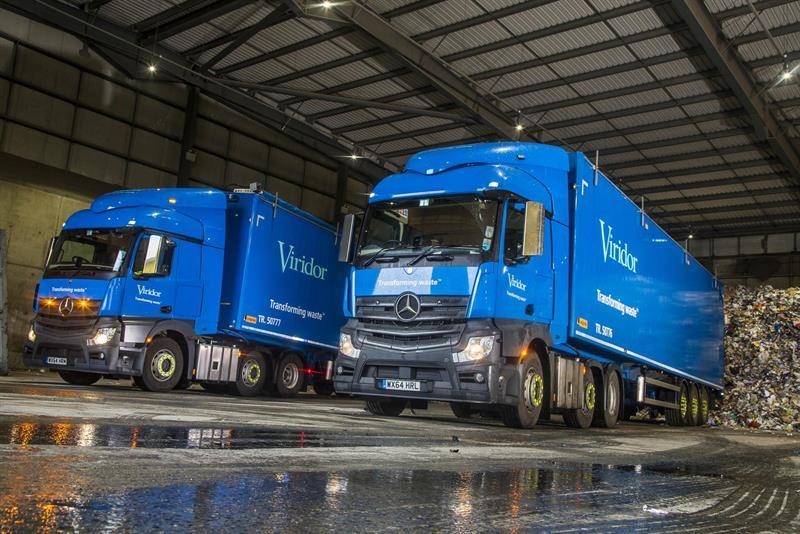
Trafford is currently ranked in the top ten boroughs in England for recycling, with a provisional recycling rate of 60.4%. This is a figure it wants to raise even further, but it seems unrealistic to expect that charging people to take away their garden waste will not impact on recycling rates. Thousands of pounds are currently being spent on encouraging people to recycle their food waste. Since April, refuse collectors have been allowed to check bins and not remove them if recyclable waste is present. It all adds up to a very constricting set of rules that makes people feel that if they don’t buy the optional green bin permit, and put the odd bit of garden waste in their bin, then the council will refuse to take all of their waste.
While stricter controls on recycling can only be a good thing, the general consensus among policy makers is that to get people to do what you want (in this case recycle), you have to make it easier for them to do so, not more difficult.
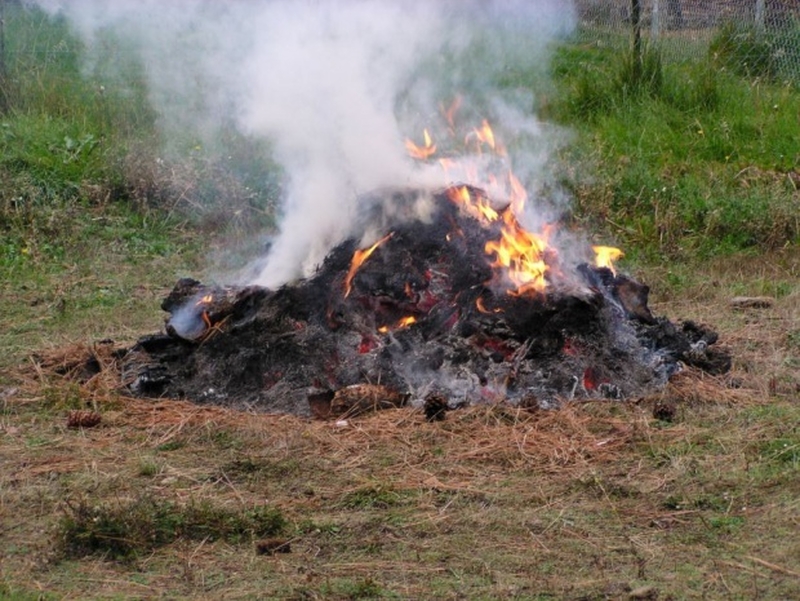
One potential problem is when people seek other means of disposing of their garden waste – flytipping and bonfires. Bonfires which constitute a ‘nuisance’ can garner fines of up to £2000, while flytipping can see penalties of up to £20,000. Tempting as it is to the conspiracy-minded to think that the council wouldn’t mind a few extra offences in order to be able to levy these large fines, the truth is that cleaning up and prosecuting the inevitable rise in these offences will cost more than the fines will bring in. This is not to mention how unpleasant the results of dumping garden waste will be for everyone.
Over 80% of those who responded to the garden waste consultation disagreed with it
Despite the unpopularity of the garden waste charge – over 80% of those who responded to the consultation disagreed with it – Trafford Council are pressing ahead. So what can you do if you don’t agree with the green bin charge? When the council acts like a corporate entity then act like you’re in a marketplace and vote with your feet. Those who have the time and capability can still take their garden waste to the recycling centre (AKA the tip) for no charge and, community-spirited folk that we are, can offer to help elderly or disabled neighbours with their garden waste.
But perhaps the cheapest and most environmentally sustainable option is to start composting yourself. The council will in fact supply composting bins that contain any mess and smell quite efficiently. You still have to pay for them, but they work out cheaper than the charge.
Trafford Council Q&A
You are identifying which bins have paid to get their garden waste collected by means of a label - what happens if bins with the label are stolen - will you replace them free of charge?
"We have a record of every address which has signed up and the crews will have access to this in the collection vehicle. Where bins go missing a new permit will be provided free of charge and identified as a replacement permit."
Will grey bins with garden waste in not be collected?
"Grey bins identified as having garden waste will not be emptied. For the next two years we are also running a campaign “Right Stuff, Right Bin” to encourage residents to recycle correctly and reduce the amount of waste in the grey bin that could be recycled. Later this year residents will be issued with a notice instructing them how to use their bins correctly and that waste that can be recycled or composted cannot be put in the grey bin."
Do you estimate the new system will slow the refuse collectors down? Have new route times been modelled? Are the refuse collectors being paid any more or given more time for this extra responsibility?
"No, crews already check the contents of bins to ensure they are not contaminated, the paid for garden service will not slow down the collection crews as green bins with garden waste and no permit will not be emptied. Collection rounds remain the same and have not changed so crews will remain familiar with the collection round. As crews will continue to collect green bins on a weekly basis, there are no changes to the frequency of the service or level of responsibility."
The Mid-term Financial Strategy report estimates the scheme will generate 900k after costs. Will all of this money go straight back to Trafford Council or will it be split with Amey?
"All monies raised after costs from the introduction of the paid for garden service go to Trafford Council. Amey does not share any of the monies raised by the paid for garden collection service."
The report forecasts a reasonably high income from the scheme which then dips the next year and then goes back up again the year after - can you explain the reason for the projected dip?
"Some of the savings generated from the scheme will be used to promote recycling of food waste and other household items, and to provide residents with caddies who would rather not continue to use a green bin. The expenditure profile on campaigns and infrastructure is causing the fluctuation in savings. The level of income projected increases slightly each year over a three year period due to the level of subscribers projected. No increases in the actual charge have been modelled in the three year projections."
Finally I know our readers are worried that the money paid for garden waste is going to Amey rather than the council. Can you reassure them that monies are passed straight to Trafford Council and is not collected by Amey and no financial details are passed on to Amey?
"All monies collected upon sign up online at www.Trafford.gov.uk/gardenwast... are received directly by Trafford Council. No financial information is passed to Amey. All monies collected by phone at 03330 035865 are collected by Amey and then transferred to Trafford Council. Amey does not share any of the monies raised by the paid for garden collection service. When a resident signs up by phone, payment is taken on a secure line meaning that financial details cannot be recorded. However, as the resident is paying Amey directly, Amey will hold their financial details securely.





